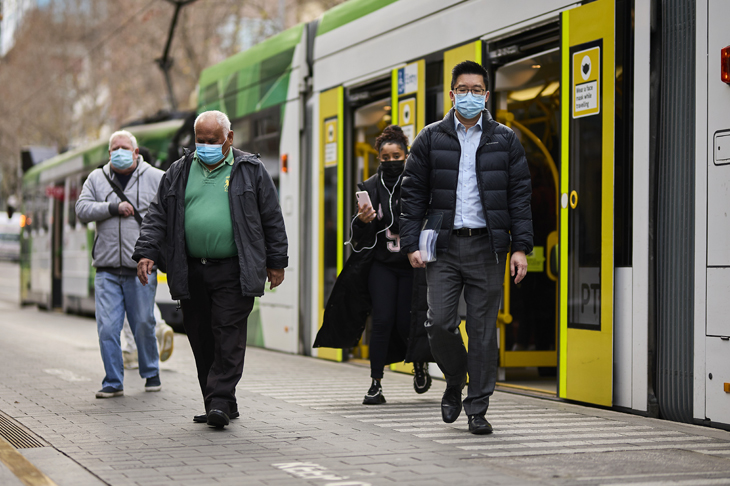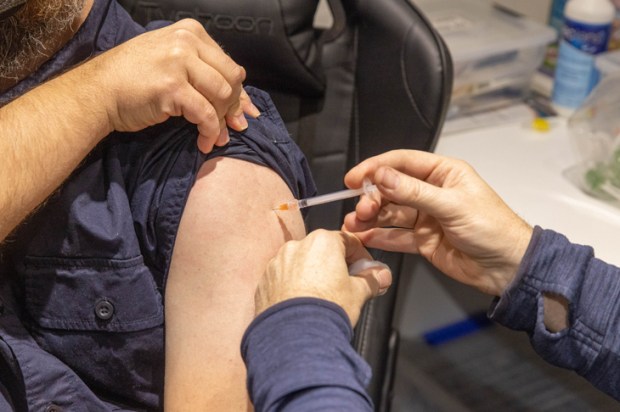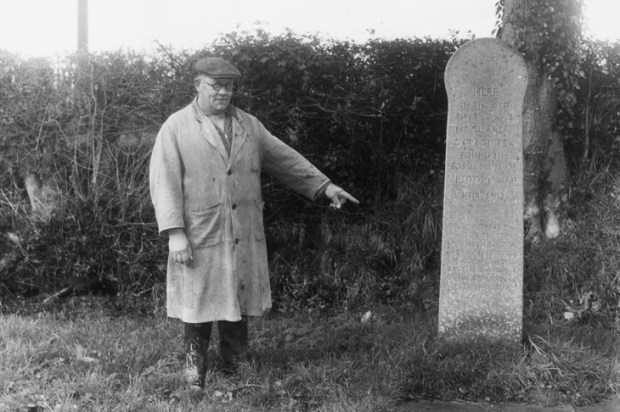The public policy madness of the Covid years seems less and less believable with each passing week and month. Many policies were absurd, idiotic and farcical, including advice to ‘dodge and don’t touch’ if an errant football came your way. Others were inhumanely cruel and heartless, their pain made all the deeper with blatant breaches of many regulations by sports and entertainment celebrities, political leaders, and even top health bureaucrats. Most inexplicably, many of the central pillars of Covid management policies went off at a tangent from established scientific consensus and the empirical data base, spreading misinformation and disinformation and often gaslighting citizens in suppressing information on harms while overstating the benefits. Most alarmingly, the state expanded and often abused its power at the cost of citizens and private enterprise, especially small family-owned and operated businesses.
There’s one recent study and three recent news items that together highlight the continuing confusion over the gravity of the Covid threat and the public health interventions to combat it. On 11 February, Frederik N.G. Andersson and Lars Jonung from Lund University in Sweden published a study in Economic Affairs examining the benefits and costs of lockdowns across 25 countries in Europe, with a particular focus on Sweden as the outstanding outlier on Covid policy. Their conclusions emphasise the importance of avoiding panic amidst a crisis and not letting short-term decisions harm long-term outcomes. Instead, measures introduced without a firm evidentiary basis as a temporary necessity lasted for two years and authoritarian China served as the model for curtailing civil liberties and citizens’ rights. Europe’s democracies instituted needlessly stringent lockdowns that produced negligible positive health effects but the decline in economic activity did correlate with the severity of lockdowns. This pathology was compounded by efforts to counter the downturn in economic activity with excessively expansionary fiscal and monetary policies that led to ballooning public debt. By contrast, Sweden’s lockdown restrictions were modest and mostly voluntary and its fiscal response was also restrained. This gave Sweden remarkably low cumulative excess mortality, small losses in economic growth and continued strong public finances. Sweden’s GDP today is around six per cent bigger than in 2019. The three news items are in relation to the mRNA injections for Covid. We now know that in reality, these are faux vaccines that neither prevent the vaccinated from being infected nor stop them from infecting others. This is why we seem to be into the ninth shot. By this logic, how long before the daily insulin injection is called a vaccine? Just weeks after reiterating the need for students registering for the fall semester to be vaccinated, Harvard University reversed that decision. In March, the university announced that incoming students will no longer be required to receive the Covid vaccine. Harvard’s status in the world of higher education is such that some optimism is justified about the ripple effects of its decision on other universities still requiring vaccination.
Unfortunately, this was more than offset by the shocking example of Pfizer advertising to recruit children as Big Pharma lab rats. Playing on parents’ fears, it noted that ‘getting vaccinated is one of the best ways to protect your child from serious illness’. It then invited them to enrol their unvaccinated child in ‘one of our ongoing vaccine clinical trials’. There are separate trial groups for 6-23 months, 2-4 years and 5-11 years-old children. This raises several troubling questions. Why would parents who have resisted the vaccination for their kids agree suddenly to let Pfizer experiment on their precious child? The latter cannot possibly give consent. But how ‘informed’ will the parents’ consent be if they are not provided with accurate statistics on the likelihood of a healthy baby, toddler or young child dying or suffering serious injury from Covid and a Covid vaccine, respectively? The available evidence suggests that the latter is up to 60 times more likely than the former. This explains why the Covid vaccine has not been authorised by the EU for children under five and permitted less than enthusiastically for young people under 18. Dr Clayton Baker, former clinical associate professor of Medical Humanities and Bioethics at Rochester University, is quoted by Thomas Buckley as saying that the heavily skewed harm-benefit ratio of Covid vaccines for children means, ‘There is no ethical reason whatsoever to continue clinical trials of these products in children, and all such trials should be stopped’.
Third, and most importantly, has been an interesting set of poll data from the UK. A wide-ranging survey conducted by the Telegraph and Censuswide and published in the Telegraph on 2 March found that a third (33 per cent) of scientists believe that officials had focused on only a minority of opinions, wrongly equating scientific scepticism with science denialism. Modelling was all too often mistaken for scientific research and modelled scenarios for hard data and scientific conclusions. This was the basis for claiming that lockdowns, mask and vaccine recommendations-cum-mandates were based on the science. A majority of scientists now profess to believing that more attention should have been paid from the start to the full and true cost of lockdowns. Yet, few were courageous enough to put their head above the parapet at the time. Science is always work in progress, never an encyclopaedia of immutable facts. The sceptics had considerable tacit support in the scientific community. ‘This was, however, muted by concerns about loss of patronage, access to research grants and difficulty in publication as the cost of speaking out’, says Professor Robert Dingwall. It is always important to prevent any public abuse and persecution of scientists who are prepared to challenge the dominant consensus. But we should not hold our breath and expect an outbreak of common sense in the public health clerisy with the next pandemic scare.
Sarah Knapton, the Telegraph’s science editor, concluded on 2 March: ‘My advice to scientists? Be brave, stand up. There are more people on your side than you realise’. While right to chastise the scientific community in their collective lack of courage, she was far too charitable to her own professional colleagues in ignoring the role of media, including the Telegraph. Adam Creighton’s article from a year ago is still in the top 15 of the most popular articles published by the Brownstone Institute. He faulted ‘a too credulous, incurious mainstream media, naive to the political and financial forces that pushed governments to eschew the more sensible path of voluntary Covid-19 vaccination’ and behavioural restriction measures. The Spectator Australia was a lonely standout against the contagion of cowardice and complicity that afflicted media across the Western democracies.
Got something to add? Join the discussion and comment below.
Get 10 issues for just $10
Subscribe to The Spectator Australia today for the next 10 magazine issues, plus full online access, for just $10.
You might disagree with half of it, but you’ll enjoy reading all of it. Try your first month for free, then just $2 a week for the remainder of your first year.














Comments
Don't miss out
Join the conversation with other Spectator Australia readers. Subscribe to leave a comment.
SUBSCRIBEAlready a subscriber? Log in